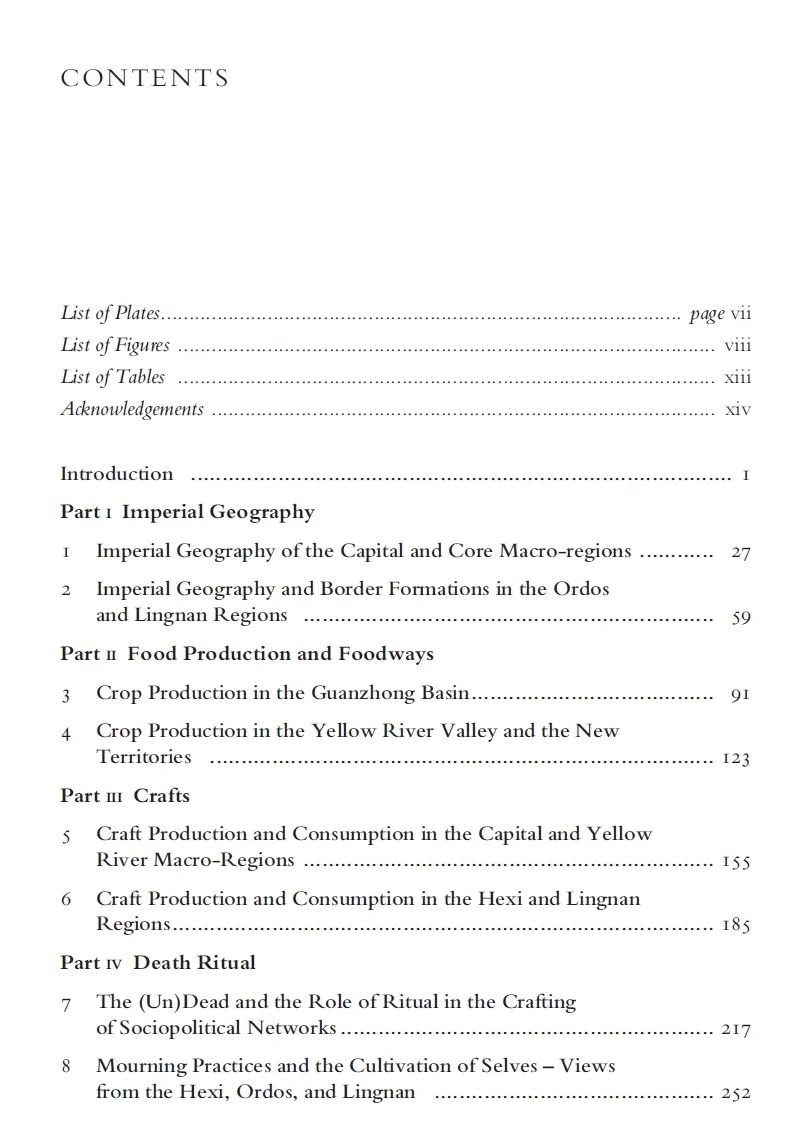书籍资料库
汉代考古学 The Archaeology of Han China
原作者: AliceYao,WengcheongLam |
来自: 古代文明与古文字研究 |
发布时间:2024-11-24 21:14 |
查看: 809 | 发布者: gogoyy |
摘要: The Han Dynasty, which ruled from 202 BCE to 212 CE, is often taken as a reference point and model for Chinese identity and tradition. Covering a geographical expanse comparable to that of the People's Republic of China, it is foundational to understandin
The Archaeology of Han China
汉代考古学
The Han Dynasty, which ruled from 202 BCE to 212 CE, is often taken as a reference point and model for Chinese identity and tradition. Covering a geographical expanse comparable to that of the People's Republic of China, it is foundational to understanding Chinese culture and politics, past and present. This volume offers an up-to-date overview of the archaeology of the Han Empire. Alice Yao and Wengcheong Lam study the period via an interdisciplinary approach that combines textual and archaeological evidence. Exploring the dynamics of empire building in East Asia, Yao and Lam draw on recent archaeological discoveries to recast Western Han imperialism as a series of contingent material projects, including the organization of spatial orders, foodways, and the expansion of communication and ritual activities. They also demonstrate how the archaeology of everyday life offers insights into the impact of social change, and how people negotiated their identities and cultural affiliations as individuals and imperial subordinates.
统治期始自公元前202年而迄于公元212年的汉朝,通常被视为中国身份特征和历史传统的基点和典范。其覆盖的地理范围与现今中国相当,是了解中国过往和现今文化与政治的基础。本书提供了对汉帝国考古的最新概述。Alice Yao和Wengcheong Lam通过结合文献文本和考古证据的跨学科方法对这一时期进行了研究。作者在探索东亚地域国家建设动态时,借鉴了新近考古发现,将西汉时期的帝国统治重塑为一系列具有代表性的物质项目,包括空间秩序的组织、饮食方式以及交流和仪式活动的扩展。他们还展示了日常生活考古学如何提供对社会变革之影响的见解,以及人们如何作为个人和国家所属来协调其身份和文化归属。(机翻 )
作者: Alice Yao and Wengcheong Lam
出版社: Cambridge University Press
出版年: December 2024
页数: 370
装帧: Paperback
ISBN:9781316636435
Table of Contents
Introduction
Part I. Imperial Geography:
1. Imperial geography of the capital and core macro-regions
2. Imperial geography and border formations in the Ordos and Lingnan regions
Part II. Food Production and Foodways:
3. Crop production in the Guanzhong Basin
4. Crop production in the Yellow River valley and the New Territories
Part III. Crafts:
5. Craft production and consumption in the capital and Yellow River Macro-regions
6. Craft production and consumption in the Hexi and Lingnan regions
Part IV. Death Ritual:
7. The (un)dead and the role of ritual in the crafting of sociopolitical networks
8. Mourning practices and the cultivation of selves – views from the Hexi, Ordos, and Lingnan.
Alice Yao, University of Chicago
Alice Yao is Associate Professor of Anthropology at the University of Chicago. An anthropological archaeologist, she is the author of The Ancient Highlands of Southwest China (2016). Her decade-long collaborations with Chinese archaeologists have resulted in the uncovering of ruins of indigenous societies and Han administrative towns in Yunnan, which was recognized as one of the top ten archaeological discoveries in 2022.
Wengcheong Lam,Chinese University of Hong Kong
Wengcheong Lam is Associate Professor in the Department of Anthropology and the Department of History at the Chinese University in Hong Kong. An archaeometallurgist, he is the author of Connectivity, Imperialism, and the Han Iron Industry.
【完】



